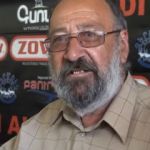Brutal revence by terrorists, says Ibn Khaldun director Dalia Ziada 16 August, 22:24
(ANSAmed) – ROME – Egyptian police complied with international regulations during the dispersal of the pro-Morsi sit-ins in Cairo, Ibn Khaldun Center for Development Studies (ICDS) executive director Dalia Ziada told ANSAmed in an email exchange. Ziada attributed the huge death toll and continuing violence to  Islamists’ ”brutal revenge reaction”, calling the Muslim Brothers ‘terrorists’
Islamists’ ”brutal revenge reaction”, calling the Muslim Brothers ‘terrorists’
The ICDS executive director called the evacuation of the two squares occupied by those calling for a reinstatement of ousted president Mohamed Morsi ”inevitable”, noting that her center had conducted a survey of Cairo and Giza inhabitants two weeks ago showing that some 63% supported the clearing out of the squares, and that for ”security reasons” the police could not allow the sit-ins to continue.
”We documented 44 torture crimes that the Muslim Brotherhood leaders ordered and their supporters executed” in a single month, she said. ”The victims who survived the systematic torture and were able to escape told us that they were tortured because they are supportive of the fall of Morsi.” Ziada went on to say that police had found weapons at the camps after they had been evacuated and had used loudspeakers to ”tell the people at the sit-in to leave and they kept doing so for at least one hour. Then, tens of the people at the strike (mostly women) left peacefully through an evacuation path and they were not touched or harmed in any way”. Only after these preliminaries did the security forces begin using tear gas and – after coming under fire from the protestors – did they use bulldozers.
The ICDS executive director attributed the high death toll to the ”brutal revenge reaction” by the Muslim Brotherhood.
Egyptian authorities were forced to clear the squares occupied by those calling for the reinstatement of ousted president Morsi, ”especially after arsenals of weapons and mass graves containing the bodies of people dead for weeks and bearing signs of torture were found in the immense camps,” ANSAmed was told by Egyptian ambassador to Rome, Amr Helmy.
Images of mass graves and corpses found in the Cairo camps of Morsi supporters have gone viral online, as has evidence of torture attributed to the Muslim Brotherhood. A video showing the mass graves is found on the site of the television station El Balad (http://www.el-balad.com/585622#.Ug378-Dg42k). After 20 corpses were found in an advanced state of decomposition – thus dating back to before the clearing out of the square by security forces the day before yesterday, explained Dalia Ziada – the police ordered that the area in front of the Rabaa mosque be dug up, where they discovered mass graves containing dozens of corpses. On her Facebook page, the activist comments on a video of a charred corpse whose fingers had been cut off found in the same mosque (http://www.youtube.com/watch?v=oaE7Wl5rsIM).
On the issue of former Egyptian interim Vice President for International Affairs Mohamed ElBaradei’s resignation Wednesday following the crackdown, Ziada remarked that it was unfortunate but not surprising, as since he had entered politics in 2010 he had done ”nothing better than tweeting”. ”Always when it comes to critical moments he runs away,” she said.
Ziada said that time would be needed before Egypt could regain stability, noting that Al-Azhar, the interim government and the military had ”called upon the Muslim Brotherhood several times” to sit down and try to reach a compromise, but that the group had refused to do anything but ”continue with violence”. (ANSAmed).










